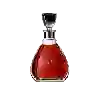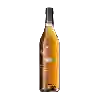
Winery Guillaume d'ArriaBanyuls Doux Naturel
This wine generally goes well with beef and mature and hard cheese.
Food and wine pairings with Banyuls Doux Naturel
Pairings that work perfectly with Banyuls Doux Naturel
Original food and wine pairings with Banyuls Doux Naturel
The Banyuls Doux Naturel of Winery Guillaume d'Arria matches generally quite well with dishes of beef or mature and hard cheese such as recipes of fondue with broth or leek, bacon and beaufort pie.
Details and technical informations about Winery Guillaume d'Arria's Banyuls Doux Naturel.
Discover the grape variety: Mourvèdre
Mourvèdre noir is a grape variety originating from Spain. It produces a variety of grape specially used for wine making. It is rare to find this grape to eat on our tables. This variety of grape is characterized by medium to large bunches, and grapes of medium size. Mourvèdre noir can be found in several vineyards: South-West, Cognac, Bordeaux, Provence & Corsica, Rhône valley, Languedoc & Roussillon, Loire valley, Savoie & Bugey, Beaujolais.
Informations about the Winery Guillaume d'Arria
The Winery Guillaume d'Arria is one of of the world's greatest estates. It offers 5 wines for sale in the of Banyuls to come and discover on site or to buy online.
The wine region of Banyuls
Banyuls wines come from the South-eastern Part of Roussillon, in the south of France, in the lower Pyrenees, a few kilometres from the Spanish border. These naturally Sweet wines are consumed both as an aperitif and as a dessert. They come in a wide range of hues, from GoldenGreen (Banyuls Blanc) to Amber (Banyuls Ambré) to the intense garnet of the standard Banyuls Rouge. Unusually among the natural sweet wines of France, all Banyuls wines are made primarily from Grenache grapes of various colors.
The wine region of Languedoc-Roussillon
Languedoc (formerly Coteaux du Languedoc) is a key appellation used in the Languedoc-Roussillon wine region of southern France. It covers Dry table wines of all three colors (red, white and rosé) from the entire region, but leaves Sweet and Sparkling wines to other more specialized appellations. About 75% of all Languedoc wines are red, with the remaining 25% split roughly down the middle between whites and rosés. The appellation covers most of the Languedoc region and almost a third of all the vineyards in France.
The word of the wine: Gout (wine of)
In red wine making, the wine comes directly from the vat after devatting (see press).













